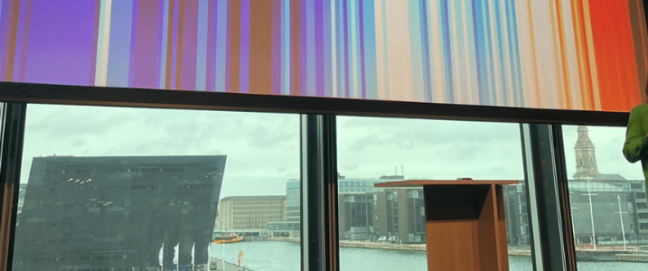Philanthropy is often an early responder. The first and urgent task is relief, but what can philanthropy do to build resilience against future shocks before and after crises? When the world’s attention moves on, what can philanthropy do either to make sure that the sufferers are getting the help they need to rebuild their lives and their societies? Given the relationship between crises, is it more important for different types of funders to make common cause or should they stick to their area of expertise?
Alliance hosted a global conversation on crisis philanthropy, ahead of our new issue on the topic released in December, guest edited by Patricia McIlreavy and Regine Webster at CDP.
Moderated by features editor Andrew Milner, the panel included:
- Annemieke de Jong, Head of Portfolio Livelihoods, IKEA Foundation
- Patricia McIlreavy, President & CEO, Center for Disaster Philanthropy
- Nasra Ismail, Global Strategy and Development Leader and ICAP Aspen Fellow
- Kellea Miller, Executive Director, Human Rights Funders Network
A few highlights from the event:
 Annemieke said: ‘We approach all our grantmaking from a multi-year perspective, but we have changed how we support short-term relief. Initially it was very ad-hoc… and that’s changed as we learned about best practice in emergency funding. It’s much better to do these unrestricted, core grants that are still multi-year, so there’s a quicker mechanism to release these funds.’
Annemieke said: ‘We approach all our grantmaking from a multi-year perspective, but we have changed how we support short-term relief. Initially it was very ad-hoc… and that’s changed as we learned about best practice in emergency funding. It’s much better to do these unrestricted, core grants that are still multi-year, so there’s a quicker mechanism to release these funds.’
 Patricia: ‘Our research shows that donors continue to prefer to fund immediate relief. Despite what everyone ‘knows’ in their heart, we still fund ear-marking for short-term, traditional programs. This preference persists even though we know that addressing root causes, mitigating hazards, preparing communities to weather the coming storms will be much better investments for humanity.’
Patricia: ‘Our research shows that donors continue to prefer to fund immediate relief. Despite what everyone ‘knows’ in their heart, we still fund ear-marking for short-term, traditional programs. This preference persists even though we know that addressing root causes, mitigating hazards, preparing communities to weather the coming storms will be much better investments for humanity.’
 Nasra: ‘What has grounded my leadership, grounded my experience is that I know what it’s like to grow up in a crisis country. I was born, and immediately right after that my country of birth, Somalia, broke down. Most of my early childhood memories are also from that, and I draw on that as a way to repair and as a way to listen and show up for communities that are going through crisis today.’
Nasra: ‘What has grounded my leadership, grounded my experience is that I know what it’s like to grow up in a crisis country. I was born, and immediately right after that my country of birth, Somalia, broke down. Most of my early childhood memories are also from that, and I draw on that as a way to repair and as a way to listen and show up for communities that are going through crisis today.’
 Kellea: ‘One thing that’s happened for us at HRFN is over the last year and a half we’ve had a lot of our funders come to us and say ‘we need to collaborate more, we need a space to come together so that we can be more effective in crisis’. We had already started this learning journey… and it was during this process that Russia invaded Ukraine.’
Kellea: ‘One thing that’s happened for us at HRFN is over the last year and a half we’ve had a lot of our funders come to us and say ‘we need to collaborate more, we need a space to come together so that we can be more effective in crisis’. We had already started this learning journey… and it was during this process that Russia invaded Ukraine.’
You can watch the full recording of the event here:
Our next Alliance event is a livestream from our London event on 2022: A Year in Philanthropy, which takes place on Thursday 1 December. Make sure you are on our mailing list to receive an invite!
Amy McGoldrick is the Marketing, Advertising and Events Manager





Comments (0)